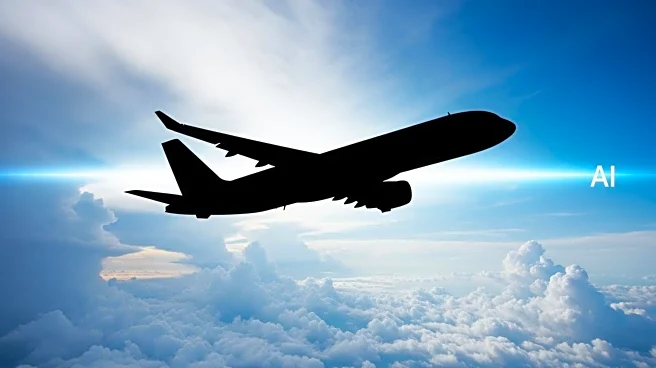What's Happening?
Lufthansa has announced plans to cut 4,000 full-time equivalent roles by 2030 as part of a broader restructuring strategy aimed at increasing profitability. The airline is focusing on administrative roles, primarily in Germany, and is leveraging artificial intelligence (AI) to enhance efficiency across various processes. This move aligns with a trend among companies using AI to streamline operations and reduce workforce sizes. Lufthansa's restructuring is part of its efforts to achieve an adjusted operating margin of 8%-10% by 2028, up from its previous target of 8%.
Why It's Important?
The decision to cut jobs and integrate AI reflects a significant shift in the airline industry towards digitalization and efficiency. By reducing its workforce and relying on AI, Lufthansa aims to improve its financial performance and remain competitive in a challenging market. This strategy could set a precedent for other airlines and industries facing similar pressures to innovate and cut costs. However, the job cuts may also raise concerns about the impact on employees and the broader labor market, particularly in regions heavily reliant on the airline industry.
What's Next?
Lufthansa's restructuring efforts will likely continue as the company seeks to meet its long-term financial targets. The airline's focus on AI and digitalization may lead to further changes in its operations and workforce composition. Stakeholders, including employees, unions, and industry analysts, will be closely monitoring the impact of these changes on the company's performance and employee relations. Additionally, Lufthansa's approach may influence other airlines to adopt similar strategies in response to economic and technological pressures.
Beyond the Headlines
The use of AI in workforce restructuring raises ethical and social considerations, particularly regarding job displacement and the need for reskilling. As companies increasingly rely on AI, there may be a growing demand for policies and programs that support affected workers and facilitate their transition to new roles. The broader implications of AI-driven efficiency in the airline industry could also affect customer experiences, operational safety, and regulatory compliance.










